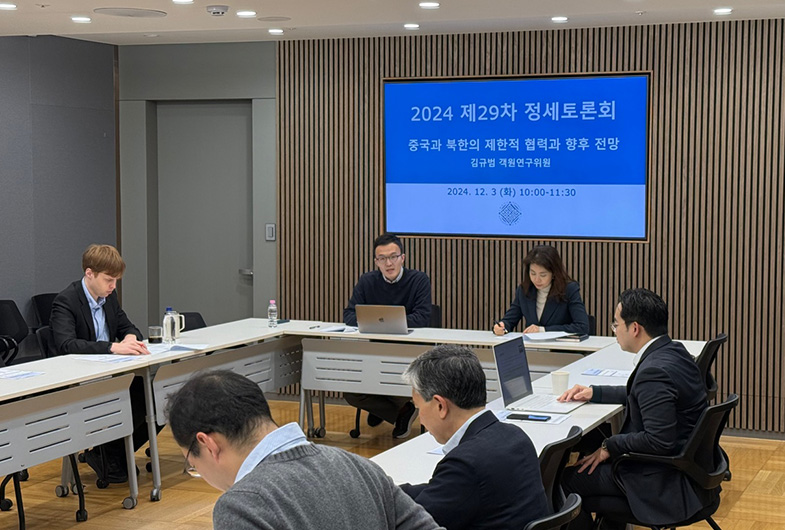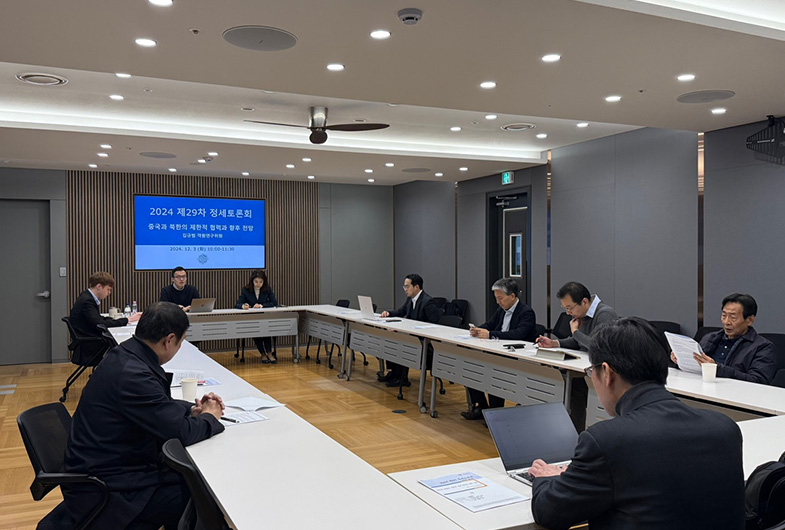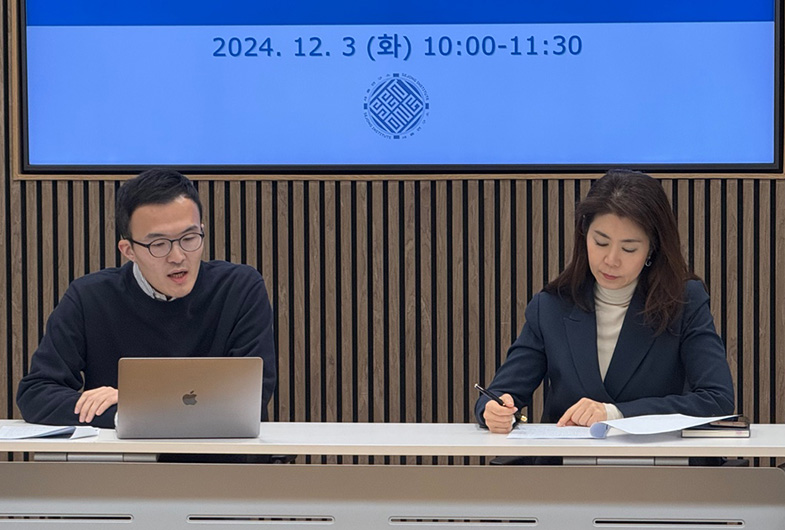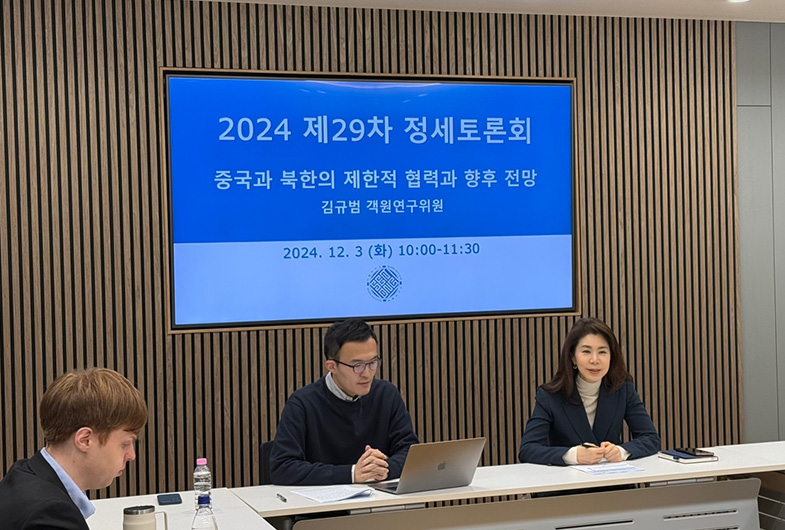On December 3rd, GyuBeom Kim, Visiting Research Fellow of Sejong Institute gave a presentation on "Limited Economic Cooperation between China and North Korea and Future Prospects" at the 29th Colloquium.
The discussion was moderated by Yoon Jung Choi, Vice President of the Sejong Institute.
At the beginning of Kim Jong Un's and Xi Jinping's administrations, the relationship between North Korea and China was a continuation of the confrontational dynamic between North Korea’s nuclear and missile tests and China’s sanctions. However, in early 2018, when Kim Jong Un entered into denuclearization negotiations, the relationship between the two countries dramatically improved. In particular, in June 2019, Xi Jinping visited Pyongyang for the first time since taking office, emphasizing the traditional relationship and strengthening strategic cooperation, while also promising to deepen economic and cultural cooperation. However, despite nearly two years since the end of COVID-19 and the opening of borders, economic cooperation between the two countries has yet to show significant progress.
Many argue that the main reasons for the weak North Korean economic cooperation are the differences in the two countries’ response strategies to the U.S.-China competition and the implementation of UN sanctions on North Korea. While these views are useful for understanding North Korean relations on a macro level, they are limited in overlooking the economic interests between the two countries.
China and North Korea show differing stances and strategies toward the trend of a multipolar international order and the U.S.-China strategic competition. These strategic differences are expected to continue to limit the scope and level of North Korea-China cooperation for some time. However, economic cooperation and trade are likely to recover gradually or at least remain slightly above the current level, and while China will continue to advocate compliance with UN sanctions, it is also possible that the two countries may seek to diversify their forms of cooperation and push for new types of exchanges.
The current lack of progress in cooperation between North Korea and China is largely due to the effects of high-intensity UN sanctions on North Korea and the strategic differences between the two countries, but these are not the only reasons. Both countries have shown differences not only in their external strategies but also in their economic interests, and there has been a long-standing tug-of-war. Therefore, to understand the current situation, it is necessary to pay attention to the changing economic interests and the specific areas of economic cooperation.



